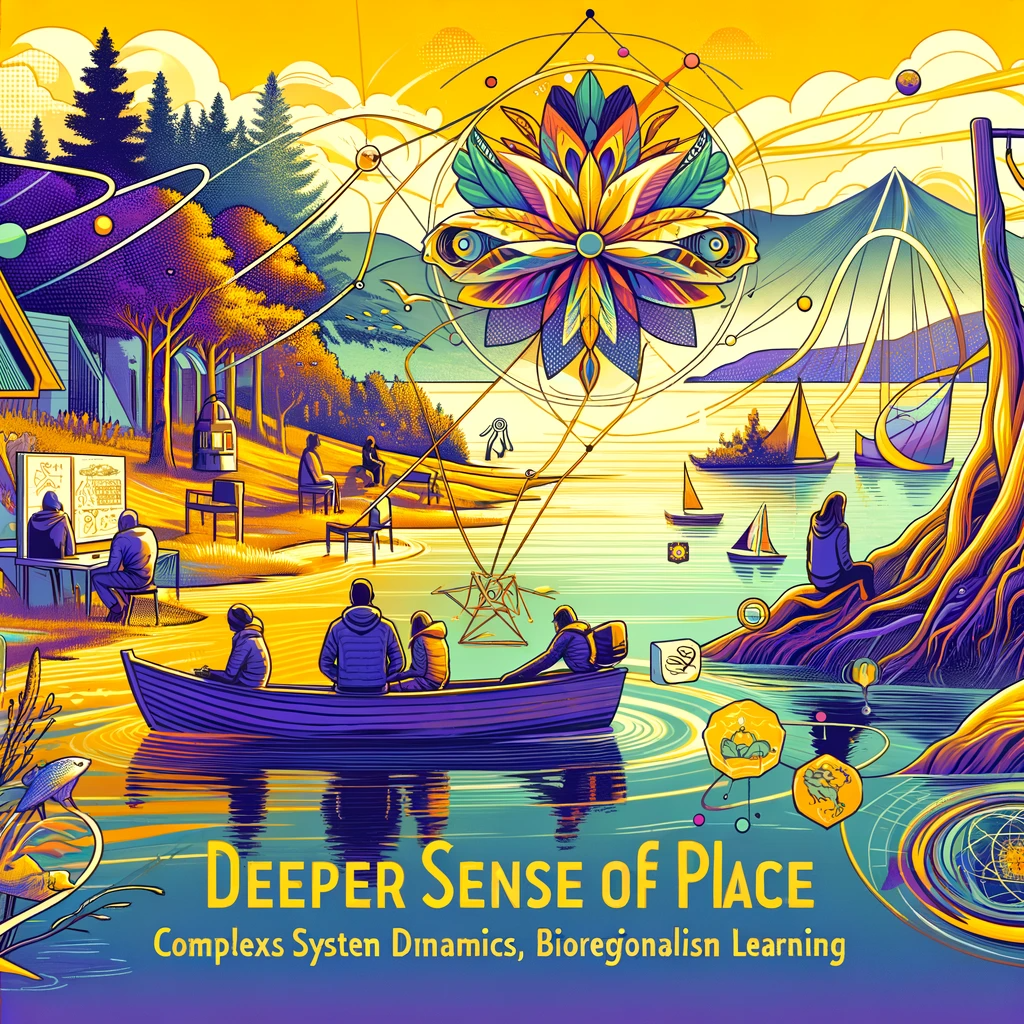2023 Conference Proceedings
Transformative Partnerships: Proceedings of the Transformations Conference ‘23, serves as both a roadmap for action and an invitation to join a collective transformation journey.
Dive into the Transformations Community's conference proceedings, featured in our third annual special issue of the Social Innovations Journal. This edition, born from our 2023 conferences in Sydney, Prague, Maine, and online, presents 28 insightful articles.
This special issue, centered on five key themes, presents a diverse array of people, ideas, and initiatives from a global community dedicated to advancing sustainable and regenerative futures.
The "Deeper Sense of Place" T-Lab in Casco Bay, ME, has proven to be a transformative experience, enhancing participants' understanding of complex system dynamics and inspiring a deeper sense of stewardship. This innovative workshop, through its unique blend of indigenous, western, and bioregional perspectives, has empowered individuals to see and lead transformative change in their bioregions.
In their exploration of systems sensing at the Transformations Conference 2023, Justus Wachs and Luea Ritter reveal its potential as a transformative tool for organizations navigating complex eco-social crises. By offering innovative ways to gather intuitive data and foster recalibration, systems sensing invites a deeper engagement with the interconnected dynamics of our world, revealing novel perspectives and pathways for systemic change.
"The Transformative Potential of Future Visioning and Reciprocity For Nature Conservation Policy and Practice" explores the urgent need for a shift in our relationship with nature, advocating for a future where humans and nature thrive in reciprocity. Authors Lily van Eeden, Christina Renowden, Fern Hames, and others present a compelling vision for 2050, emphasizing the importance of diverse voices and a deep, lifelong entanglement with nature for sustainable and just conservation practices.
TC23 emphasized the intricate dance between personal growth and systemic change, highlighting the importance of transformative leadership as a dynamic, collective process. Key discussions focused on the ongoing journey of transformation and the crucial role of inclusive community building in fostering sustainable, equitable, and regenerative futures.
In TC23, Glory Dee Romo and Mariana Zafeirakopoulos explored the critical role of transformative policies, institutions, and organizations in driving sustainable change. Their synthesis highlighted the importance of long-term persistence in efforts, the power of finding like-minded allies, the necessity of tailoring change to specific organizational contexts, and the pivotal role of leadership in fostering transformative environments.
The Transformative Leadership panel at the 2023 Transformations Community Conference emphasized the complexity and multifaceted nature of leadership in sustainability transformations, highlighting the need for partnerships across various sectors and the importance of embracing diversity in knowledge and perspectives.
In the "Transformative Policy & Paradigms" panel, experts discussed the roles of large-scale actor coalitions in sustainability transformations and the creation of a toolbox for building transformative coalitions in Latin America. The panel emphasized the importance of co-designing and co-creating transformative processes, highlighting the need for inclusive participation and addressing power asymmetries for sustainable and just transformations.
In the "State of the Field Panel on the Evaluation and Assessment of Transformation" at the Transformations 2023 conference, experts discussed the evolving practice of evaluation in the context of global crises. They emphasized the need for transformative approaches in evaluation, focusing on cross-scale, nonlinear transformations, and the integration of diverse, inclusive perspectives to effectively address complex societal challenges.
Samuel Wearne critiques the prevailing academic publishing model in sustainability science, emphasizing its failure to adequately support transformative, context-sensitive, and inclusive sustainability practices. He proposes a strategic shift towards regionally focused, place-based publications as a means to empower diverse, localized knowledge systems and democratize the sustainability discourse.
Authors propose a transformative approach to research by integrating relational ontologies into transdisciplinary learning. They emphasize the importance of acknowledging diverse worldviews, fostering human-nature relationality, and valuing interconnectedness to enhance the co-production of knowledge and foster more equal and just relationships in sustainability research.
The Transformations 2023 Conference offered profound insights into the evolution of the Transformations Community, emphasizing its expansion beyond academia and its pivotal role in fostering global transformative change. Panelists at the conference highlighted the importance of community building, inner transformation, and the need for a collective voice to address global challenges, setting a path for the community to be a catalyst in transdisciplinary research and practice.
At TC23, experts in systems education highlighted the critical role of introspection and active listening in empowering transformative sustainability practitioners. They discussed the challenges of integrating systems thinking in traditional educational settings and the importance of fostering emotional resilience and agency among students.
Sensemaking the Transformations Community’s Future" delves into the collective journey of the Transformations Community (TC), a group dedicated to sustainability and systemic change. This reflective piece, stemming from the 2023 biennial conference and a subsequent sensemaker retreat in Prague, introduces the guiding principles of Temperance, Transdisciplinarity, Translocalism, and Transformative Learning.
At the TC23, a panel of network leadership experts discussed the evolving field, focusing on essential competencies and the significance of team-based strategies. Their insights, drawn from diverse experiences, underscore the importance of inclusive, holistic approaches in cultivating effective network leaders for systemic change.
This paper explores the effectiveness of Generative Scribing and Social Field Resonance in fostering inclusive and transformative learning processes, particularly in addressing sustainability's root issues, as observed during the WorldEthicForum’s 2023 convening. It highlights the significance of integrating diverse forms of knowledge and relational thinking to navigate the complexities of sustainability challenges.
At the Transformations 2023 Conference, finance experts highlighted the need for a paradigm shift in financial systems to effectively support systemic transformation. They discussed the emergence of transformative finance strategies, emphasizing radical collaboration, an experimental mindset, and stakeholder inclusivity as key drivers for change.
SIJ Meet the Authors Symposium:
Welcome to the recorded session of the SIJ Authors Symposium, an integral part of the Transformations Conference '23. This event brought together thought leaders, practitioners, and researchers in the field of sustainability and social-ecological transformation.
📘 About SIJ:
A key event for the Transformations Community, the Symposium highlights new insights in sustainability and transformation research, promoting knowledge exchange and collaborative action.

















